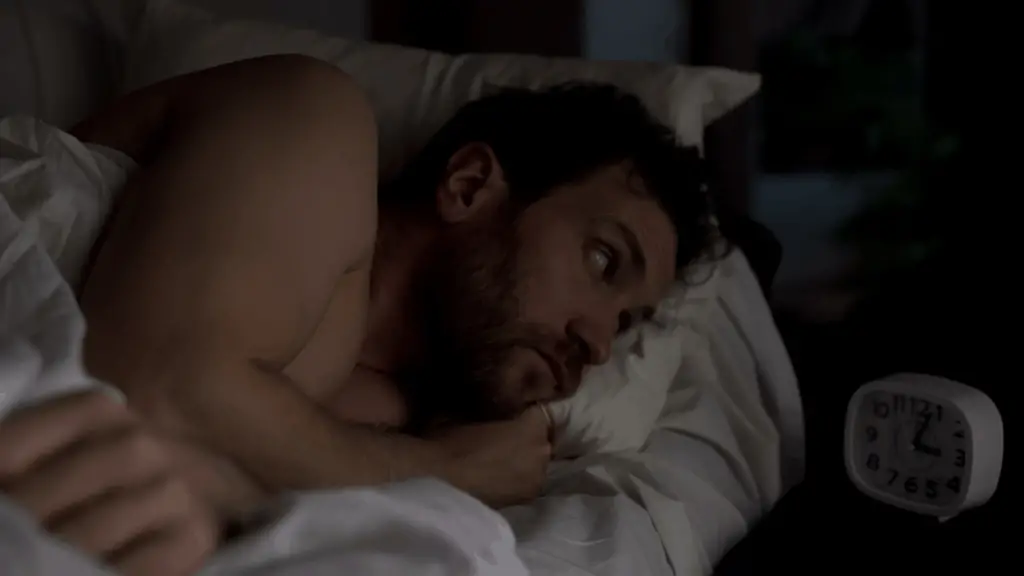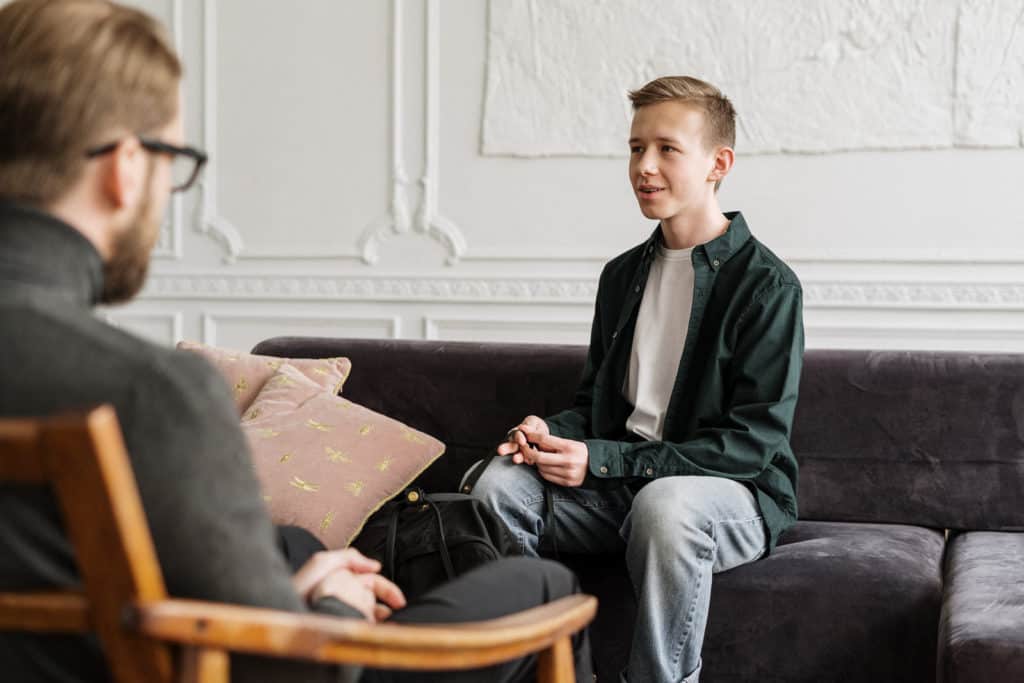This article is evidence-based, verified by Ashleigh Willis, a Neuroscience Ph.D. candidate.
Hypnosis is a psychological phenomenon that has puzzled scientists for decades. During hypnosis, people are more relaxed and have a heightened imagination. While in this state, people become uninhibited and suggestable. This often means that the hypnotist can implant ideas and change behavior.
Hypnosis is usually associated with stage shows and entertainment. We’re all familiar with the classic image of a hypnotist with a pocket watch. However, there may be a more therapeutic use for hypnosis.
Hypnosis therapy is now widely used to address a variety of conditions. The therapy has become popular as a treatment for trauma and addiction. Some forms of hypnosis are used to treat more complex psychiatric conditions.
Theoretically, hypnosis may not work in autistic people if there are fewer “mirror neurons” present in the person’s brain. However, some individuals with autism may respond to hypnotherapy and benefit from this practice.
What is hypnotherapy?
Hypnotherapy in a clinical setting doesn’t include entrancing people with a pocket watch. Instead, hypnotherapy harnesses the tools of guided relaxation. Therapists also focus on concentration and targeted attention to induce a trance-like state. Once in this state, the external environment becomes blocked out or ignored.
Hypnosis can be used to help with psychological problems in two ways:
Suggestion in hypnosis
Suggestion therapy is a form of hypnosis that is used to change certain behaviors. While in a hypnotized state, people are more suggestible. This means the therapist can suggest ways of changing certain behaviors.
This can include changing perceptions, breaking addictions, or altering sensations. This type of therapy is beneficial for those suffering from pain and other psychical issues. However, it’s also useful for anxiety and stress management
Analysis in hypnosis
The approach uses heightened relaxation to explore the root causes of psychological issues. People are less inhibited in a hypnotic state. This means they are more likely to address complicated root causes.
Research has also shown increased access to trauma memory in this trance-like state. Therefore, this type of therapy can be useful for addressing painful memories. Analysis-style hypnotherapy can be helpful for chronic conditions such as anxiety or depression.
These two forms of hypnotherapy are often discussed separately. However, using both methods can be used in parallel can be powerful. When used together, these methods can drive understand and behavior change. This can be effective when a psychological symptom is triggering a behavior. For example, if addiction is being driven by depression.
Hypnotherapy is performed by a certified mental health professional, they will usually be a counselor or psychologist with specialized training.
What can hypnosis help with?

As we’ve discussed, hypnosis appears useful for a variety of conditions. There are now a variety of in-person and online methods of hypnosis that target specific requirements. Hypnosis is classically considered as an aid to psychotherapy. However, there are some novel uses for hypnosis too.
Hypnosis for sleep 👨⚕️
When a person is in a hypnotic state, it sometimes looks like they’re asleep. Hypnosis isn’t the same as sleeping. But some therapists think it is a powerful tool for dealing with sleep problems.
Sleep hypnosis is a form of suggestive hypnotherapy. It involves listening to verbal cues that draw you into a trance-like state. From this point, the hypnotherapist will use tools such as guided imagery to induce deep relaxation. It is thought that this deepened relaxation makes it easier to fall and stay asleep.
There are types of therapies that are delivered digitally. Videos and audio recordings can be downloaded from various online resources. These are often accessible for free.
Many testimonials support the enormous benefits of hypnotherapy to sleep. However, the scientific evidence to back this up is lacking. There have only been a handful of studies that have investigated hypnotherapy as a sleep disorder treatment. Most of these have focussed on insomnia. The results are mixed.
A good quality meta-analysis reviewed the current literature and found some impressive results. They reported people with insomnia fell asleep faster than patients on the ”waitlist”. However, when comparing hypnotherapy to placebo in insomnia patients, there was no difference. Guided imagery alone was also no different from placebo.
It’sIt’s interesting that patients in the treatment group performed better than those on the waiting list, but not better than placebo. This suggests that undergoing any intervention, even a placebo, can improve insomnia.
There is almost no empirical research into hypnotherapy for other sleep disorders. Equally, there are no studies that have investigated the biological basis of how these therapies work.
We’ll come back to whether hypnotherapy actually works later in the article. For now, it’s important to remember that the success of hypnotherapy is mostly based on your own suggestibility. People who are more naturally suggestable are more easily hypnotized.
Hence, they will find themselves experiencing better results. Some research has shown that up to a quarter of people are unable to be hypnotized. Further research has indicated that it may only work in combination with other therapies. Some reports say sleep hypnosis may only be effective when combined with cognitive-behavioral therapy.
The Sleep Foundation is an organization that provides advice and information for professionals. They don’t discourage the use of sleep hypnosis. But they highlight many more effective therapies to help combat sleeping problems.
The scientific jury is still out on the effectiveness of sleep therapy. However, a quick search of the internet will reveal hundreds of success stories. Importantly, there is no evidence to suggest that hypnotherapy is harmful to most people.
The exception is people who suffer from hallucinations, delusions, or other psychotic symptoms. If you have any of these symptoms, hypnotherapy isn’t right for you.
Hypnosis for anxiety 👨⚕️
Anxiety and related disorders can be challenging to treat. Traditional psychotherapies are sometimes ineffective for a long time. This is because painful or traumatic memories often drive anxiety.
The elevated emotional states caused by these memories make it difficult for patients to discuss them. This prevents them from getting the root of their anxiety. In extreme cases, anxiety-triggering memories are suppressed. This means they are inaccessible and difficult to identify.
Hypnotherapy is becoming more popular for the treatment of anxiety. This type of hypnotherapy combines both suggestive and analytic approaches. During a hypnotherapy session that targets anxiety, therapists guide the patient into a relaxed state. Once in this state, the therapist will suggest calming and relaxing ideas to the patient.
Therapists may use positive affirmations such as “you will no longer feel stressed.” They may also suggest changes to behavior to help deal with stressful situations. Therapists think these suggestions can gradually improve the patient’s self-regulation ability.
Hypnotherapists may also use analytic techniques to help patients find the root causes of their anxiety. This can be particularly useful for people who deal with panic attacks. While under hypnosis, the therapist can help the client to identify anxiety triggers.
These may be memories or experiences. Combining this knowledge with suggested behavioral changes can be powerful. The combination may act as a powerful antidote for anxiety. Sometimes this is referred to as “cognitive-behavioral hypnotherapy.”
There is some empirical research that has investigated hypnotherapy for anxiety.
A 2017 review looked at the results of 20 studies. These studies investigated the effectiveness of hypnotherapy in patients with cancer. Cancer patients often experience high levels of anxiety. This is usually related to their health and treatment.
This review found that hypnotherapy immediately improved anxiety levels in patients. Additionally, they found that hypnotherapy was most effective in children and young people.
Case studies have found that hypnotherapy is effective in treat panic disorders such as agoraphobia. Agoraphobia is a condition in which people have panic attacks in restrictive situations. This can include large crowds or busy places.
Hypnotherapy has been shown to help people deal with these fears in real-time. Additionally, some studies have found that hypnotherapy can alleviate anxiety associated with PTSD.
There isn’t a lot of research about the effects of hypnotherapy, especially compared to well-established anxiety treatments. For example, traditional cognitive behavioral therapy and cognitive-behavior hypnotherapy have never been compared.
If you’re suffering from anxiety, you may find hypnotherapy useful. However, you should always discuss changes to your treatment routine with your doctor.
One interesting point to note is that sleep disorders and anxiety are often related. If sleep issues are linked with anxious feelings, hypnotherapy may be an option that can help.
Sleep problems in autism

A 2019 study suggested that around 80% of people with autism struggle with sleep in some way. People with autism are more prone to insomnia and take longer to fall asleep than the average person. Typically, people with autism will also wake up more and have less restorative sleep.
Unfortunately, these issues with sleep can make certain features of the disorder worse. Sleep deprivation can worsen repetitive behaviors. In turn, these behaviors can make sleeping even harder. Sleep issues in autism often become a vicious cycle.
A reduction in sleep quality can also hinder social behaviors. Poor sleep can make it more challenging to interact with others. A 2009 study reported that children with autism are more distractible and hyperactive when they miss out on sleep.
Importantly, people with autism often suffer from anxiety, as well. It’sIt’s well established that anxiety can disrupt sleep. This might be another contributor to poor sleep.
In some cases, people with autism have mutations to genes that control our ”body clock”. Some of these genes control the sleep-wake cycle. This means that in some cases, there is also a genetic basis for sleep disruption.
Is hypnotherapy effective in autistic people? 👨⚕️

For parents and carers of people with autism, sleep disruption can cause a lot of stress. Many people are inclined to try any suggested therapy. But, before diving in, we should consider whether hypnotherapy works in people with autism.
Some researchers have suggested this might not be the case. This argument is based on the fact that the neural underpinnings of hypnosis may rely on empathy. Some studies have shown that feelings of empathy facilitate the conditions for hypnosis.
Many people with autism struggle with empathy and relating to others. Because of this, scientists thought that hypnosis might not work on people with autism.
Neuroscience research has suggested that hypnosis relies on brain cells called “mirror neurons.” These cells are thought to be dysfunctional in autism. Although there is conflicting evidence about whether this is the case, if there are differences in mirror neuron function in autism, hypnosis may not work in the same way.
From the limited research available, that doesn’t appear to be the case. In some cases, hypnotherapy may be useful for people with autism.
There’s no conclusive evidence that shows that hypnotherapy can help people with autism sleep. Some researchers have suggested that hypnotherapy may aid in self-regulation. This might help people with autism find ways to regulate and get better sleep.
In-Person vs. Online: Does the hypnosis delivery method matter?🌐

In the modern era, hypnosis is available in-person and online. Online methods can include interactive video calls or pre-recorded audio or video. Hypnosis is an immersive experience. Hence, there is some skepticism surrounding the usefulness of digital techniques. Yet, as discussed before, many people use hypnotic audio recordings to fall asleep.
or pre-recorded audio or video. Hypnosis is an immersive experience. Hence, there is some skepticism surrounding the usefulness of digital techniques. Yet, as discussed before, many people use hypnotic audio recordings to fall asleep.
Many hypnotherapists claim that online methods work as effectively. They also suggest that online hypnotherapy can work for people with autism.
There haven’t been any well-controlled research studies to confirm these claims yet. However, one randomized controlled trial found that online hypnosis was effective for migraines. The study didn’t include an in-person therapy comparison group.
We need more research to understand if the effects of in-person and online hypnotherapy work in the same way for people with autism.
The take-home message 📝

There is no shortage of rave reviews about the benefits of hypnotherapy. However, empirical scientific evidence still lags behind.
Hypnotherapy is becoming popular for the treatment of sleep disruption and anxiety. These conditions are often interlinked. It is likely that if hypnotherapy benefits one, it may improve the other.
There is little research on the effectiveness of hypnotherapy in people with autism. Given their difference in empathy and understanding, it is likely that techniques may need to be adapted.
We all know the benefits of a full night of rest. Sleep in crucial for good mental and physical health. Hypnotherapy may provide a useful intervention to improve sleep and anxiety. Additionally, there’s nothing to suggest that hypnotherapy can be harmful if it is alongside traditional psychotherapy.
This is the case for both people with and without autism. But, due to the lack of scientific evidence, you shouldn’t give up any current treatment regimes.
The Surprising Benefits Of TMS Therapy For People With Autism 🧠

Ashleigh Willis is a final year Ph.D. candidate in Neuroscience at the University of Glasgow. Her research investigates the genetic and environmental contributors to mental health and neurodevelopmental conditions. Ashleigh has built research collaborations with McGill University and received specialist training at the Centre for Neuroscience at Montreal General Hospital, McGill University Health Centre. She is also an active member of the Society for Neuroscience. Ashleigh holds an Honours in Psychology, an MRes in Neuroscience, and is fascinated by the neuronal circuits which make us who we are. Ashleigh is passionate about providing a deeper understanding of mental health conditions and sharing an accurate and de-stigmatizing message through talks for organizations such as TEDx, Pint of Science, and the Scottish Funding Council.
You can follow Ashleigh on her Youtube channel here
References
- Aurora RN, Zak RS, Auerbach SH, et al. Best practice guide for the treatment of nightmare disorder in adults. J Clin Sleep Med. 2010;6(4):389‐401.
- Becker PM. Hypnosis in the Management of Sleep Disorders. Sleep Med Clin. 2015;10(1):85‐92. doi:10.1016/j.jsmc.2014.11.003

- Cowen L. Literature review into the effectiveness of hypnotherapy. ACRJ. 2016;10(1):1-55.
- Flynn N. Effect of an Online Hypnosis Intervention in Reducing Migraine Symptoms: A Randomized Controlled Trial. Int J Clin Exp Hypn. 2019;67(3):313‐335. doi:10.1080/00207144.2019.1612674
- Golden WL. Cognitive hypnotherapy for anxiety disorders. Am J Clin Hypn. 2012;54(4):263‐274. doi:10.1080/00029157.2011.650333

- Graci GM, Hardie JC. Evidenced-based hypnotherapy for the management of sleep disorders. Int J Clin Exp Hypn. 2007;55(3):288‐302. doi:10.1080/00207140701338662
- Kawashima S, Ichiki M, Ono S, Katayama S, Matsuki S, Iimori M. The effectiveness of hypnosis for patients with panic disorder (1): two case studies. J Tokyo Med Uni. 2012;70(3):341-350.
- Lam TH, Chung KF, Yeung WF, Yu BY, Yung KP, Ng TH. Hypnotherapy for insomnia: a systematic review and meta-analysis of randomized controlled trials. Complement Ther Med. 2015;23(5):719‐732. doi:10.1016/j.ctim.2015.07.011

- Lam TH, Chung KF, Lee CT, Yeung WF, Yu BY. Hypnotherapy for insomnia: A randomized controlled trial comparing generic and disease-specific suggestions. Complement Ther Med. 2018;41:231‐239. doi:10.1016/j.ctim.2018.10.008
- Reid DB. Treating panic disorder hypnotically. Am J Clin Hypn. 2017;60(2):137-148. doi:1080/00029157.2017.1288608
- Reid DB. Hypnosis Without Empathy? Perspectives From Autistic Spectrum Disorder and Stage Hypnosis. Am J Clin Hypn. 2016;58(3):304‐320. doi:10.1080/00029157.2015.1103204
- Rossi EL, Rossi KL. The neuroscience of observing consciousness & mirror neurons in therapeutic hypnosis. Am J Clin Hypn. 2006;48(4):263‐278. doi:10.1080/00029157.2006.10401533
- Sugarman LI, Garrison BL, Williford KL. Symptoms as solutions: hypnosis and biofeedback for autonomic regulation in autism spectrum disorders. Am J Clin Hypn. 2013;56(2):152‐173. doi:10.1080/00029157.2013.768197

